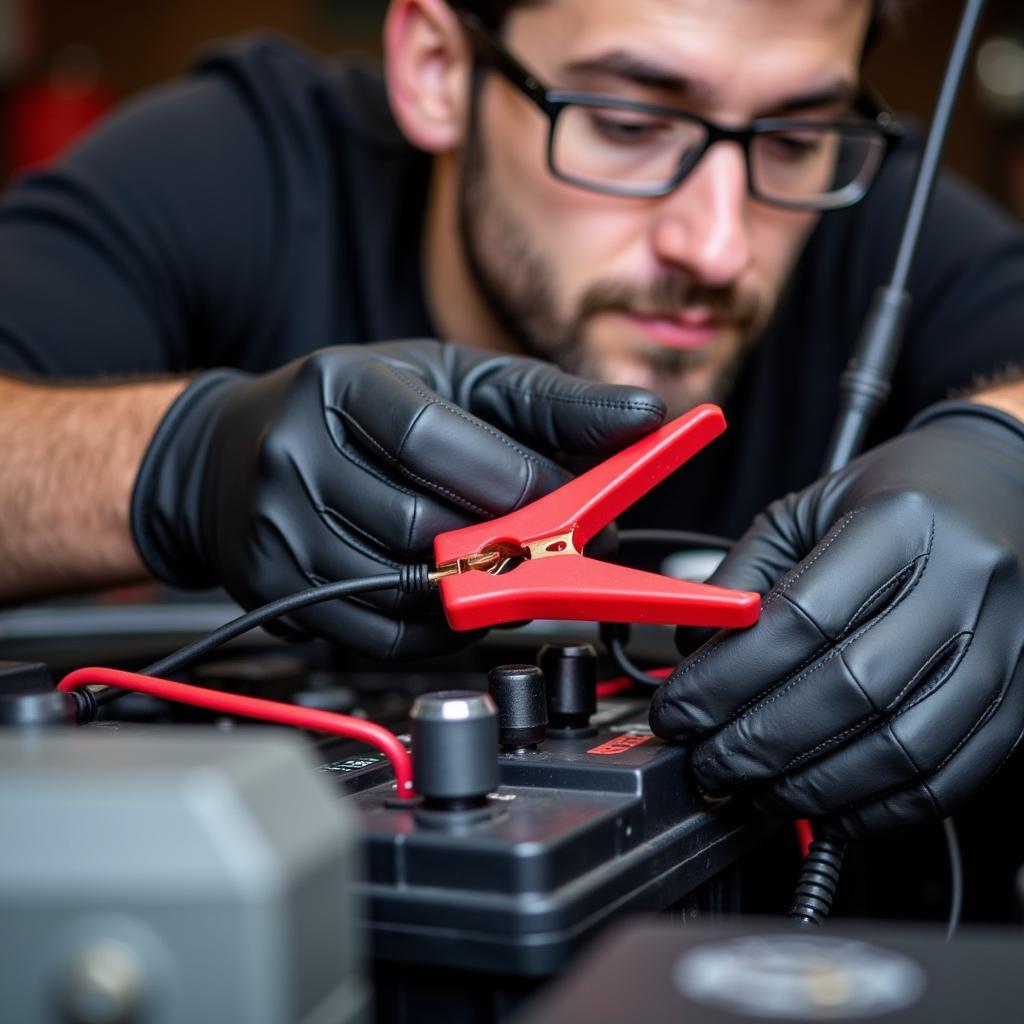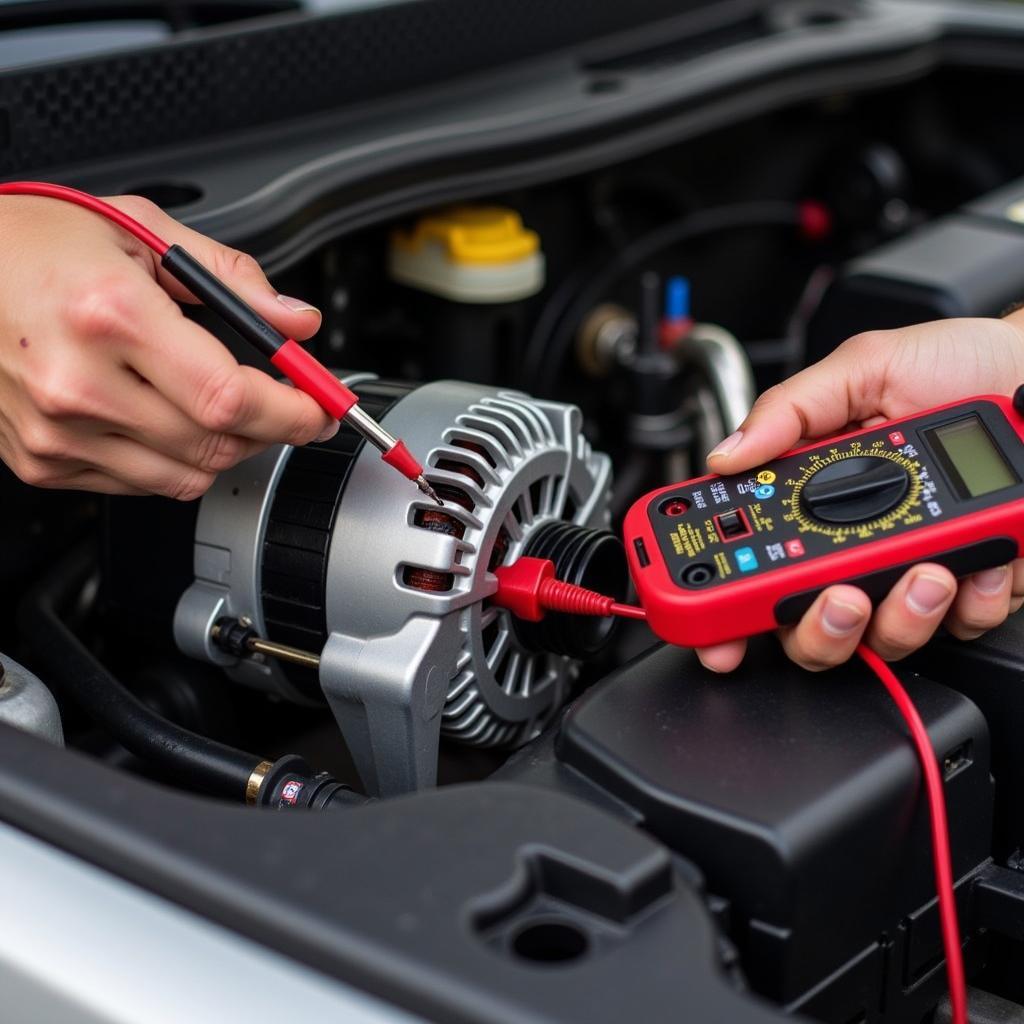Your car won’t start, leaving you stranded and frustrated. This is a common problem, especially with automatic transmissions, and can stem from a variety of issues. Don’t panic! This guide will help you diagnose why your automatic won’t start and provide potential solutions, from simple checks to more complex troubleshooting steps, empowering you to get back on the road. We’ll cover everything from dead batteries to faulty starters and beyond.
If your car battery is dead and your car wont start with new battery, this guide offers solutions.
Common Reasons Why Your Automatic Won’t Start
There are several reasons why your automatic transmission car might refuse to start. Understanding the potential culprits can save you time and money. Let’s explore some of the most frequent issues.
Dead Battery: The Usual Suspect
A dead battery is the most common cause of a car not starting. If your headlights are dim, the radio doesn’t work, or you hear a clicking sound when you turn the key, your battery is likely the issue.
- Jump-starting: Try jump-starting your car using jumper cables and another vehicle. If the car starts, this confirms a dead battery.
- Battery Testing: Even if the car starts after a jump, have your battery tested to ensure it’s holding a charge properly. A faulty battery may need replacement.
Starter Motor Problems: The Engine’s Cranking Power
The starter motor is responsible for cranking the engine to life. A faulty starter can produce a clicking sound, a whirring noise, or complete silence when you try to start the car.
- Testing the Starter: A mechanic can test the starter motor to determine if it’s functioning correctly.
Fuel System Issues: Starving the Engine
A lack of fuel reaching the engine can also prevent it from starting. This can be due to a clogged fuel filter, a malfunctioning fuel pump, or even an empty fuel tank (it happens!).
- Checking the Fuel Gauge: Make sure you have enough fuel!
- Fuel Pump Inspection: A professional can check your fuel pump and filter to ensure they are working properly.
 Jump Starting a Car with Jumper Cables
Jump Starting a Car with Jumper Cables
Why Won’t My Car Start Even With a New Battery?
Sometimes, even with a brand new battery, your automatic still won’t start. This can be incredibly frustrating, but it points towards issues beyond a simple dead battery.
Alternator Problems: The Battery’s Charging System
The alternator recharges the battery while the engine is running. A faulty alternator can drain a new battery quickly, leaving you stranded again.
- Testing the Alternator: A multimeter can be used to check the alternator’s output voltage.
Ignition System Faults: The Spark of Life
The ignition system provides the spark that ignites the fuel-air mixture in the engine. Problems with the ignition switch, coil, or spark plugs can prevent the engine from starting.
- Checking Spark Plugs: Spark plugs should be inspected for wear and tear and replaced if necessary.
If you recently installed a new battery and your car still wont start after new battery, there are several other potential causes to consider.
 Inspecting a Car Alternator
Inspecting a Car Alternator
Advanced Diagnostics for Stubborn Starting Problems
If you’ve checked the common culprits and your automatic still won’t start, it’s time for more advanced diagnostics.
Remote Diagnostics and Software Solutions
Modern vehicles rely heavily on software and electronics. Issues with the car’s computer system, sensors, or software can cause starting problems. Remote diagnostics and software updates can often identify and resolve these complex issues.
- Remote Programming: Experienced technicians can access your car’s computer system remotely to diagnose and resolve software-related starting problems. This can save time and often requires no physical interaction with the vehicle.
“Remote diagnostics is a game-changer in the automotive industry,” says John Smith, Senior Automotive Diagnostic Technician at XYZ Auto Repair. “It allows us to pinpoint complex software issues quickly and efficiently, often without the need for a physical inspection.”
Conclusion: Getting Your Automatic Back on Track
A car that won’t start can be a major inconvenience. However, by understanding the common causes and following the troubleshooting steps outlined in this guide, you can often identify the problem and get your automatic running again. Remember, for complex issues, seeking professional help with remote diagnostics and software solutions can be the quickest and most efficient way to resolve stubborn starting problems. If your car not starting battery and alternator good, you might have a more complex issue. Consider remote diagnostics to identify the problem.
FAQ
- What is the most common reason an automatic car won’t start? A dead battery is the most common culprit.
- What should I do if my car won’t start and I hear a clicking sound? This often indicates a problem with the starter motor or a dead battery.
- Can a bad alternator prevent my car from starting even with a new battery? Yes, a faulty alternator can drain a new battery, preventing the car from starting.
- What are the benefits of remote diagnostics for car starting problems? Remote diagnostics allows technicians to quickly identify and fix complex software-related issues, saving time and potentially avoiding costly repairs. If your car wont start no clicking, check the fuel pump and ignition system.
- What are some signs of a fuel system problem preventing my car from starting? An empty fuel tank, a clogged fuel filter, or a malfunctioning fuel pump can all prevent the engine from starting.
- How can I test my car battery? You can use a multimeter to test the battery’s voltage or take it to an auto parts store for testing. If your battery dead car wont start, a jump start might be the solution.
- When should I seek professional help for car starting problems? If you’ve tried basic troubleshooting steps and the car still won’t start, it’s best to consult a qualified mechanic.
